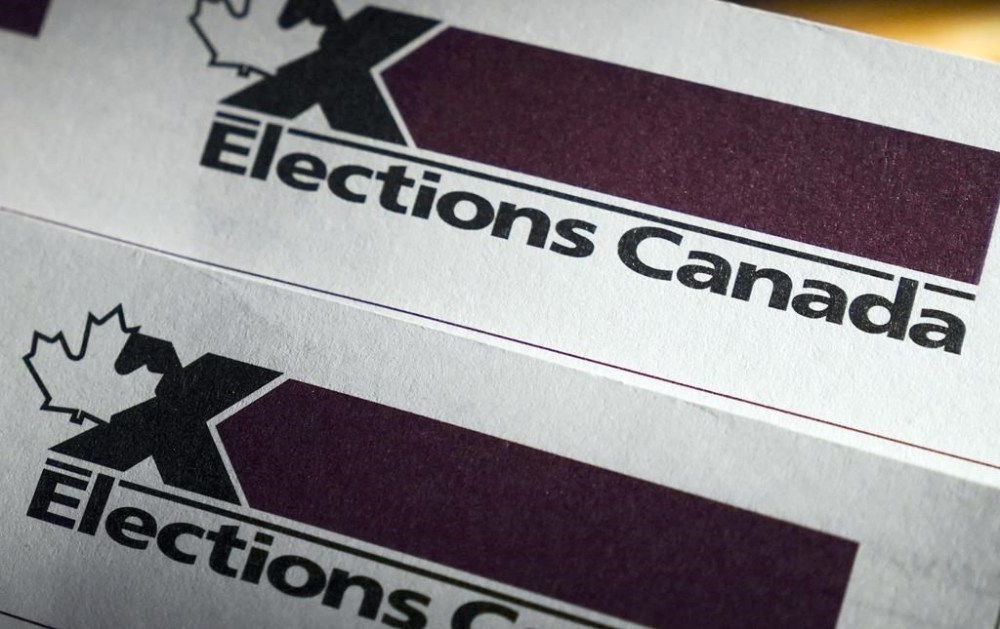Make political parties subject to privacy laws
Advertisement
Read this article for free:
or
Already have an account? Log in here »
We need your support!
Local journalism needs your support!
As we navigate through unprecedented times, our journalists are working harder than ever to bring you the latest local updates to keep you safe and informed.
Now, more than ever, we need your support.
Starting at $15.99 plus taxes every four weeks you can access your Brandon Sun online and full access to all content as it appears on our website.
Subscribe Nowor call circulation directly at (204) 727-0527.
Your pledge helps to ensure we provide the news that matters most to your community!
To continue reading, please subscribe:
Add Brandon Sun access to your Free Press subscription for only an additional
$1 for the first 4 weeks*
*Your next subscription payment will increase by $1.00 and you will be charged $20.00 plus GST for four weeks. After four weeks, your payment will increase to $24.00 plus GST every four weeks.
Read unlimited articles for free today:
or
Already have an account? Log in here »
Hey there, time traveller!
This article was published 29/08/2024 (521 days ago), so information in it may no longer be current.
It’s an issue that puts the privacy and security of hundreds of thousands of Canadians at ongoing risk of identity theft, fraud and other harms. Despite that reality, the very people we count on to protect us from those dangers are instead increasing our vulnerability.
Earlier this month, the OpenMedia organization released a report that revealed that “at least 91 companies in Canada’s political influence industry are handling Canadian voter data in a regulatory void.”
OpenMedia is a non-partisan, non-profit advocacy organization, with its mission being “to advance and support a media communications system in Canada that adheres to the principles of access, choice, diversity, innovation and openness.”

The organization says it conducted a “data-driven examination of businesses that gather data about Canadian voters on behalf of Canadian political parties” and found that at least 91 companies were active in the industry between 2015 and 2024.
It also determined that, because political parties are neither private nor public entities, Canadian law currently places very few limits on their data-collection activities, even when handling sensitive voter information.
OpenMedia executive director Matt Hatfield says the report “should shock every Canadian,” and claims that the organization’s research “uncovered a vast array of consultants and businesses collecting, analyzing and using sensitive information about Canadian voters — all in a near regulatory void.”
He adds that “Canada is nearly alone amongst developed democracies in setting almost no external rules or oversight over the data practices of political parties. Yet unbelievably, rather than fixing this obvious problem, the federal Liberals, NDP and Conservatives are fighting in court to keep the status quo.”
Hatfield isn’t exaggerating the seriousness of the problem. Political parties are largely exempt from privacy laws at the federal level. Indeed, the federal Privacy Act doesn’t apply to them because they aren’t public institutions, while the Personal Information and Electronic Documents Act doesn’t apply because they aren’t the type of private-sector organizations on which that law is focused.
That gap results in a lawless black hole of non-transparency and unaccountability, putting the privacy interests of many Canadians at grave risk.
When you respond to your MLA’s flyer by giving your contact information and email address, or when you purchase a party membership or make a donation by using your credit card or bank card, that information can pass through the hands of a vast number of party volunteers, private data analysts, political consultants, polling organization employees and any number of other individuals involved in the political process.
With each of those persons having unregulated access to that information, you are exposed to an incremental risk of a devastating privacy breach that could take years to recover from.
Given the seriousness of the danger to Canadians, many would assume that our federal political parties are rushing to fix the problem. Instead, they are doing the opposite.
In August 2022, British Columbia’s privacy commissioner ruled that political parties were not exempt from that province’s privacy law. Based on that decision, they were required to seek consent for how they collect, use and disclose the personal information of British Columbians.
Rather than accepting that ruling, however, the federal Liberal, Conservative and New Democratic parties jointly filed a lawsuit against the decision. Their challenge was dismissed by the Supreme Court of British Columbia in May, but they are now appealing that decision.
There’s a phrase we often hear in the political context, and it applies here: the Liberals, Conservatives and New Democrats “need to read the room.” Indeed, Canada’s chief electoral officer, numerous privacy commissioners (federal, provincial and territorial), the House of Commons Standing Committee on Access to Information, Privacy and Ethics, and the Senate Legal and Constitutional Affairs Committee have all called for political parties to be subject to federal privacy law.
On top of that, an Elections Canada poll found that a staggering 96 per cent of respondents believe that laws should regulate how political parties collect and use our data.
Our federal political parties must recognize that the position they are currently taking is ethically indefensible and recklessly endangers the people they claim to represent and care about.
It’s time for those parties to reverse course and provide the privacy protection, transparency and accountability that Canadians expect and deserve.
